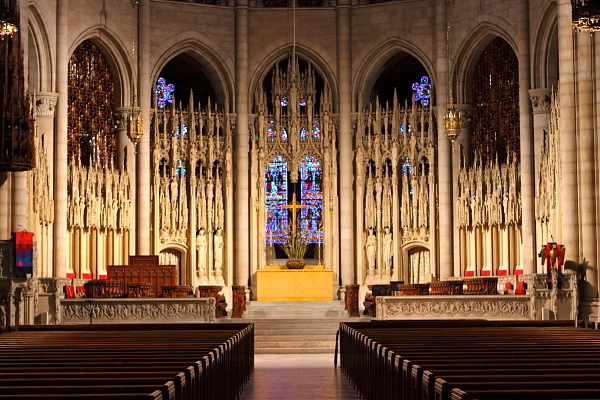“A Revolution Of Values”
Dr. King’s Economic Justice and Anti-Imperialism Views Whitewashed
This is a repost – from January 17, 2011 (with a closing note and link to new essay from the Black Agenda Report – Don’t You Dare Conflate MLK and Obama)
Every year, on Martin Luther King, Jr. Day, I read what is perhaps King’s most important and timeless speech “Beyond Vietnam: A Time To Break Silence” (delivered on April 4, 1967, at Riverside Church, NYC, exactly one year to the day before his assassination in Memphis).
Many think that this speech – as part of King’s expanding mission from civil rights to human rights, based on Economic and Social Justice, and culminating in the Poor People’s Campaign, which integrated critiques and social protest movements against poverty, racism, and war – is what led to his assassination.
Today’s media and timid politicians have whitewashed King’s legacy , limiting focus to politically safe and feel good excerpts from his ”I Have a Dream” speech. But King was far more progressive. For example, you won’t hear these lines from “Beyond Vietnam” on the TeeVee news (my favorite):
I am convinced that if we are to get on the right side of the world revolution, we as a nation must undergo a radical revolution of values. We must rapidly begin the shift from a “thing-oriented” society to a “person-oriented” society. When machines and computers, profit motives and property rights are considered more important than people, the giant triplets of racism, materialism, and militarism are incapable of being conquered.
… A nation that continues year after year to spend more money on military defense than on programs of social uplift is approaching spiritual death.
King won the Nobel Peace Prize in 1964.
The irony of the 2009 Peace Prize winner in the White House expanding unjust wars of aggression in at least three countries is not lost on history.
[Closing note: King’s 1967 speech to the SCLC annual convention: “Where do we go from here” :(bold is mine)
“Now we must develop progress, or rather, a program—and I can’t stay on this long—that will drive the nation to a guaranteed annual income. Now, early in the century this proposal would have been greeted with ridicule and denunciation as destructive of initiative and responsibility. At that time economic status was considered the measure of the individual’s abilities and talents. And in the thinking of that day, the absence of worldly goods indicated a want of industrious habits and moral fiber. We’ve come a long way in our understanding of human motivation and of the blind operation of our economic system. Now we realize that dislocations in the market operation of our economy and the prevalence of discrimination thrust people into idleness and bind them in constant or frequent unemployment against their will. The poor are less often dismissed, I hope, from our conscience today by being branded as inferior and incompetent. We also know that no matter how dynamically the economy develops and expands, it does not eliminate all poverty.
The problem indicates that our emphasis must be twofold: We must create full employment, or we must create incomes. People must be made consumers by one method or the other. Once they are placed in this position, we need to be concerned that the potential of the individual is not wasted. New forms of work that enhance the social good will have to be devised for those for whom traditional jobs are not available. In 1879 Henry George anticipated this state of affairs when he wrote in Progress and Poverty:
“The fact is that the work which improves the condition of mankind, the work which extends knowledge and increases power and enriches literature and elevates thought, is not done to secure a living. It is not the work of slaves driven to their tasks either by the, that of a taskmaster or by animal necessities. It is the work of men who somehow find a form of work that brings a security for its own sake and a state of society where want is abolished.”
Work of this sort could be enormously increased, and we are likely to find that the problem of housing, education, instead of preceding the elimination of poverty, will themselves be affected if poverty is first abolished. The poor, transformed into purchasers, will do a great deal on their own to alter housing decay. Negroes, who have a double disability, will have a greater effect on discrimination when they have the additional weapon of cash to use in their struggle. […]
I want to say to you as I move to my conclusion, as we talk about “Where do we go from here?” that we must honestly face the fact that the movement must address itself to the question of restructuring the whole of American society. (Yes) There are forty million poor people here, and one day we must ask the question, “Why are there forty million poor people in America?” And when you begin to ask that question, you are raising a question about the economic system, about a broader distribution of wealth. When you ask that question, you begin to question the capitalistic economy. (Yes) And I’m simply saying that more and more, we’ve got to begin to ask questions about the whole society. We are called upon to help the discouraged beggars in life’s marketplace. (Yes) But one day we must come to see that an edifice which produces beggars needs restructuring. (All right) It means that questions must be raised. And you see, my friends, when you deal with this you begin to ask the question, “Who owns the oil?” (Yes) You begin to ask the question, “Who owns the iron ore?” (Yes) You begin to ask the question, “Why is it that people have to pay water bills in a world that’s two-thirds water?” (All right) These are words that must be said. (All right)
